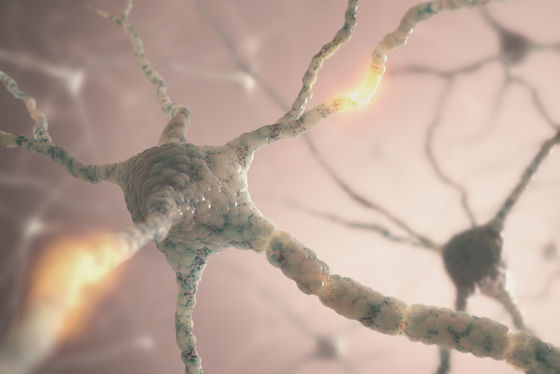The mechanism by which 'pain' is caused by lack of sleep has been revealed

There is a close relationship between pain and sleep, and in some cases, pain can make it difficult to sleep, and in other cases, lack of sleep can cause headaches and whole body pain. A study in mice found that chronic sleep deprivation negatively affects areas of the brain associated with pain.
The endocannabinoid N-arachidonoyl dopamine is critical for hyperalgesia induced by chronic sleep disruption | Nature Communications
Research reveals how sleep disruption can worsen pain
https://www.massgeneral.org/news/press-release/research-reveals-how-sleep-disruption-can-exacerbate-pain
There's an Important Reason Disturbed Sleep Makes Everything Hurt More : ScienceAlert
https://www.sciencealert.com/theres-an-important-reason-disturbed-sleep-makes-everything-hurt-more

It is said that 11 to 40% of all adults experience chronic pain, which is chronic pain, and is associated with various complications such as anxiety, depression, and sleep disorders. In addition, one-third of adults in the United States suffer from sleep disorders or sleep deprivation, and people with chronic pain are particularly likely to experience sleep disorders.
A research team led by Shiqian Shen of Massachusetts General Hospital, who previously discovered that the sensation of pain involves a part of the brain called the reticular nucleus of the thalamus, has now discovered how sleep deprivation can affect the sense of pain. I looked into whether it was related to pain.

In experiments, mice deprived of sleep for five consecutive days showed higher sensitivity in tests measuring their response to pain. When they measured the brain waves of these mice, they found that neurons in the reticular nucleus of the thalamus that transmit sensations such as pain, touch, and temperature were overactive.
Furthermore, when we examined the brain metabolism of sleep-deprived mice, we found that they had less of the substance N-arachidonoyldopamine (NADA) than control mice.
NADA is a type of
When the research team administered NADA to sleep-deprived mice, the abnormally increased activity of neurons in the reticular nucleus of the thalamus normalized, and pain-related responses returned to normal. They also found that blocking the receptors that sense endocannabinoids reversed the beneficial effects of NADA.

Endocannabinoids are thought to be involved in many neurological diseases, including multiple sclerosis, Parkinson's disease, Alzheimer's disease, and epilepsy, and this study shows that they also play an important role in chronic pain associated with sleep deprivation. It is suggested that.
Dr. Shen from Massachusetts General Hospital, who led the study, said: ``We have uncovered the mechanism of how sleep inhibition intensifies pain.''We hope to use endocannabinoids to reduce pain and sleep deprivation. We may be able to break this vicious cycle.'
Related Posts:
in Science, Posted by log1l_ks







